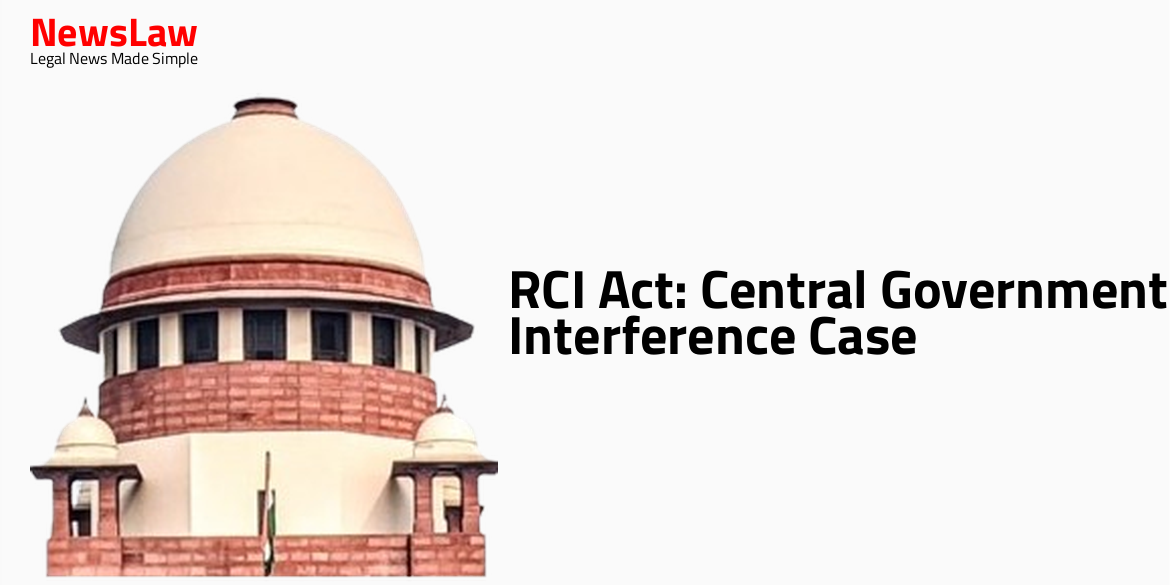The court case delves into the nuanced legal analysis undertaken in the revision of a vacancy declaration under the Rent Control Act. The court’s scrutiny of statutory provisions and precedents exemplifies the importance of upholding legal principles in such matters. This case sets a crucial precedent in determining the court’s jurisdiction and the scope of revisional power in addressing discrepancies in occupancy declarations.
Facts
- The original tenant filed objections to the inspection report stating that he and his family were the only occupants in the premises.
- The Rent Control Inspector’s report indicated that there were multiple families living in the premises, not all of whom were related to the tenant.
- Based on the report, the Rent Control Inspector declared the premises vacant on 4.6.2003.
- The appellant and Shabbir Ahmed filed a Writ Petition challenging the declaration of vacancy.
- The High Court allowed the Writ Petition filed by the landlords, leading to the current appeal.
- The facts of the case revolve around the original tenant, Rashid Ahmed, who passed away leaving his son, the present appellant, as the legal heir.
- The Rent Controller and Eviction Officer found discrepancies in the occupancy of the premises after Rashid Ahmed’s death.
- The respondents, who were the landlords, alleged that the property had been sub-let to individuals not related to the tenant.
- This ultimately resulted in the declaration of the suit premises as ‘vacant’ in favor of the landlords by the final order under the U.P. Act, 1972.
- The respondents did not challenge the vacancy order and the order dated 23.8.2006 passed by the High Court.
- The District Judge allowed the revision and set aside the vacancy order dated 4.6.2003 and the final order dated 31.5.2007.
- The High Court noted that the judgment and order dated 23.8.2006 had not been challenged by the respondents.
- The High Court granted liberty to challenge the order dated 4.6.2003 after the final order of release/allotment was passed.
Also Read: Presumption of Genuine Endorsements in Cheque Case
Analysis
- The High Court, exercising jurisdiction under Article 227, cannot act as an appellate court.
- The High Court cannot interfere with findings of fact by the first appellate authority unless there is illegality or impropriety.
- The High Court can set aside impugned orders if found to be not legal or proper under Rent Control Acts.
- Revisional power is limited and cannot be equated with the power of reconsideration of all questions of fact.
- The High Court should keep subordinate tribunals within their authority and ensure compliance with the law.
- Revisional powers can only be used if the impugned order violates a statutory provision or suffers from misreading of evidence.
- Liberty to challenge the vacancy order can be granted after the final order is passed under the relevant Act.
- An order notifying vacancy is a step towards passing the final order and can be challenged accordingly.
- The High Court’s interference in revision should be based on violation of law or binding precedents or misreading of evidence.
- In the absence of specific provisions, challenges against interim orders can be made in proceedings leading to final orders.
- An order notifying a vacancy, which leads to the final order of allotment, can be challenged in a proceeding taken to challenge the final order.
- The revisional power does not allow the High Court to interfere with the factual findings of the first appellate court or authority.
- The vacancy declaration cannot be made if a person who is not a family member is residing on the premises along with the family members of the original tenant.
- The interpretation of the words ‘allowed to be occupied’ as per Section 12 of the U.P. Act, 1972 is crucial in determining vacancy.
- Preliminary steps like the order declaring a vacancy can be challenged even in a revision against the final allotment order.
- The failure to challenge the notifying vacancy order immediately does not result in the loss of the right to challenge it later in a revision against the final order of allotment.
- Orders declaring a vacancy are significant in the process leading up to the final allotment order and can be challenged accordingly.
- The power to rescind a final order under this sub-section does not include the power to pass an allotment order in favor of a different person than the original allottee.
- When an order under Section 16 or Section 19 is rescinded, the District Magistrate must place the parties back in their original positions before the order was passed.
- Section 18 of the U.P. Act, 1972 states that no appeal lies from an order under Section 16 or Section 19, but a person aggrieved by a final order can file a revision with the District Judge within fifteen days of the order.
- Grounds for filing a revision include the District Magistrate exercising jurisdiction not vested in him by law, failing to exercise vested jurisdiction, or acting illegally or with material irregularity.
- The revising authority can confirm, rescind, or remand the final order and may stay the operation of the order pending the revision.
- Exercise of jurisdiction by the High court under Article 227 was unwarranted and unjustified.
Also Read: Medical Negligence and Compensation: A Landmark Decision
Decision
- The appeal is allowed.
Also Read: Remand of Writ Petition for Restoration and Decision on Merits
Case Title: MOHD. INAM Vs. SANJAY KUMAR SINGHAL (2020 INSC 445)
Case Number: C.A. No.-002697-002697 / 2020



